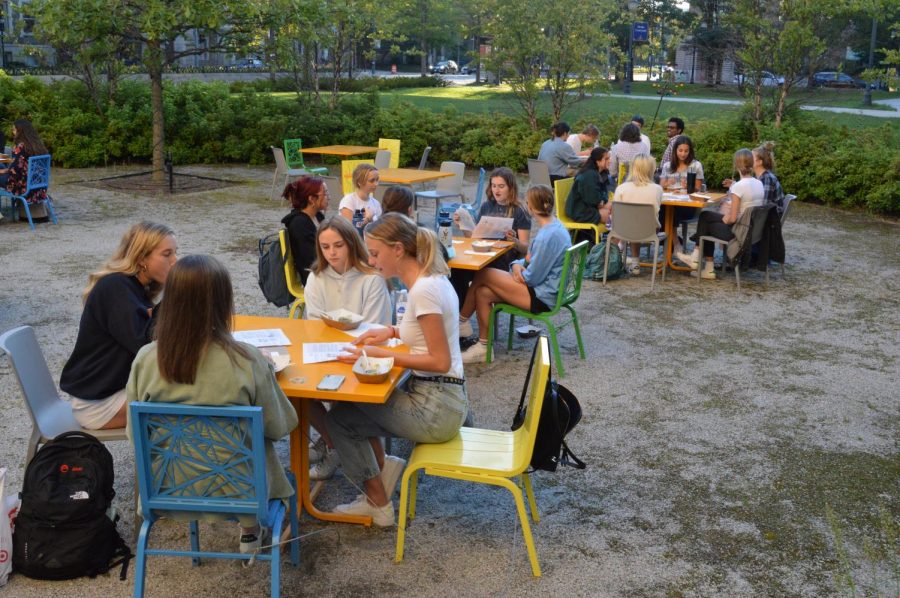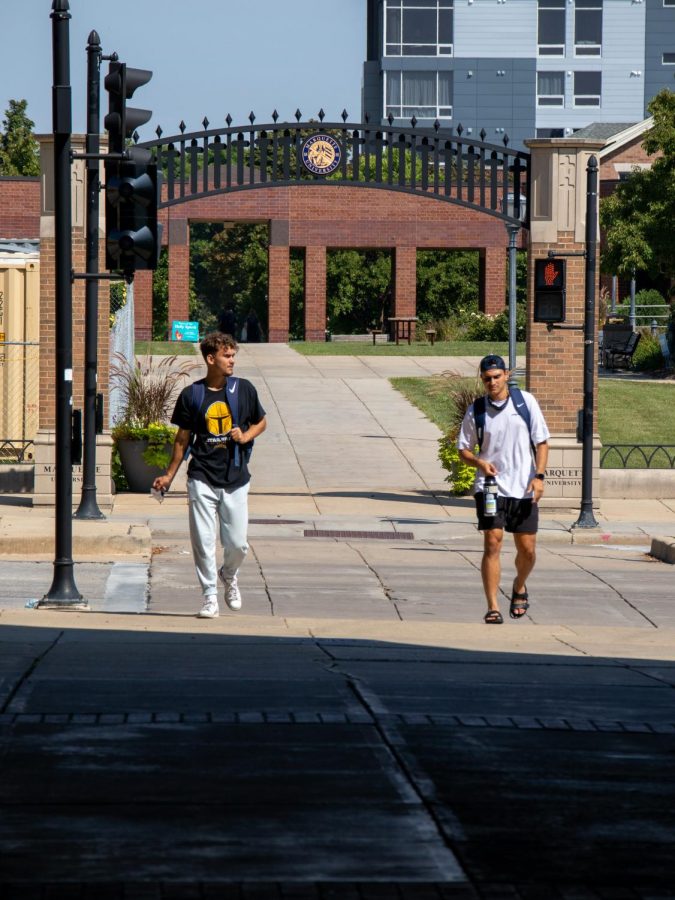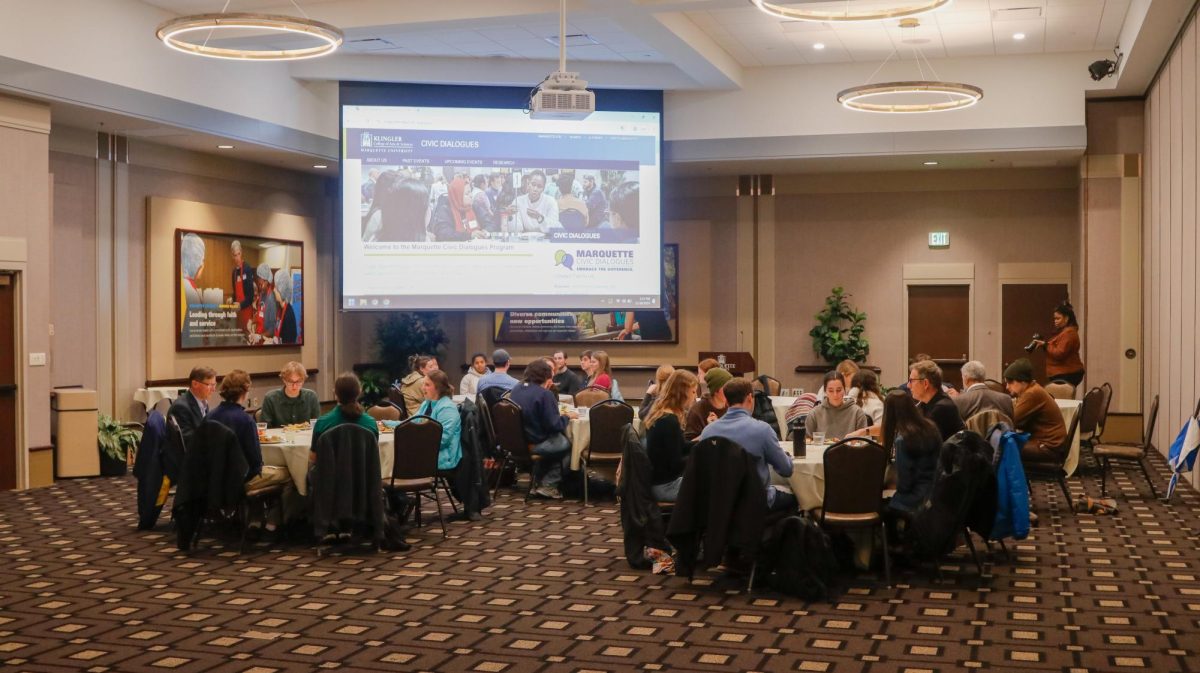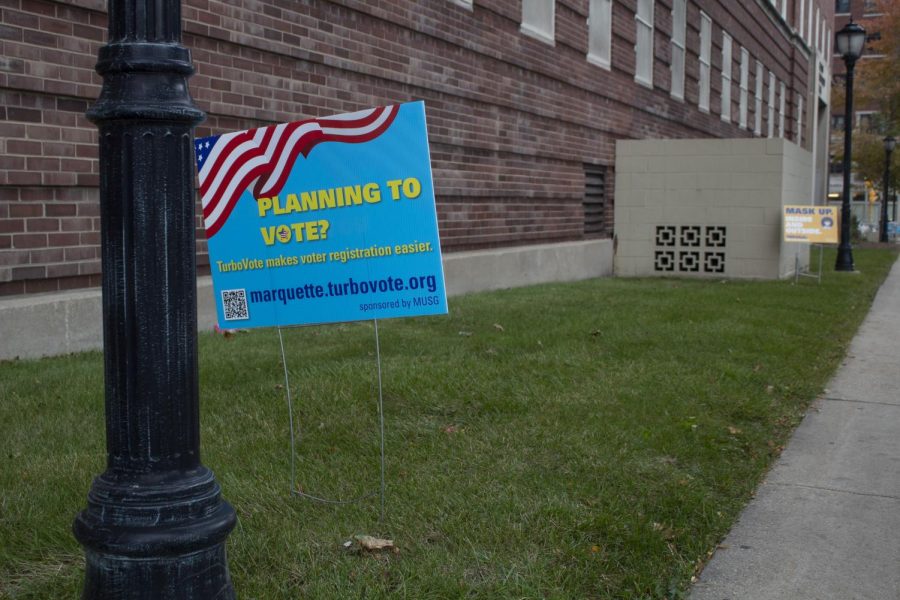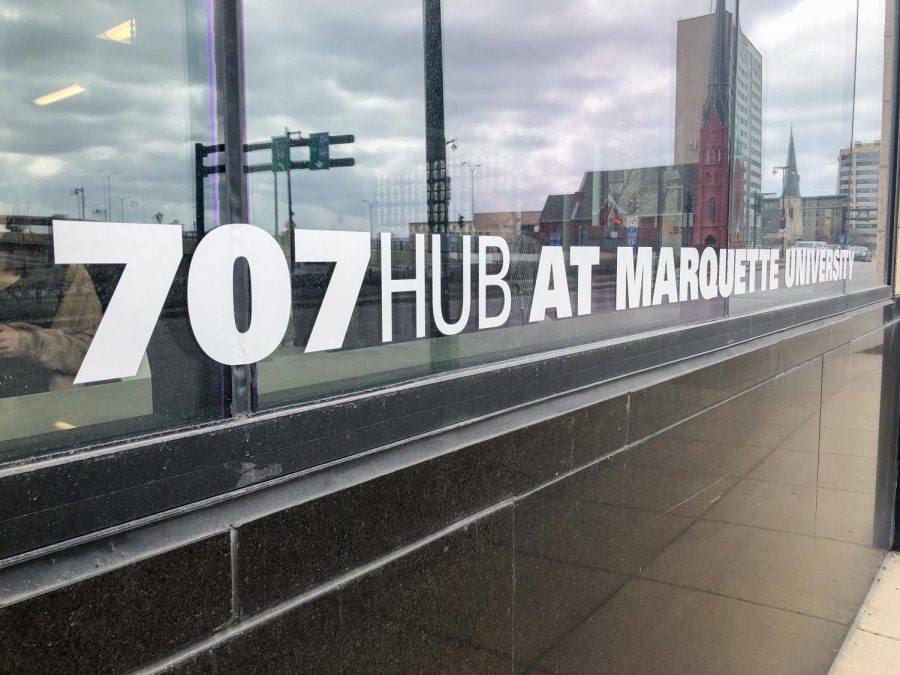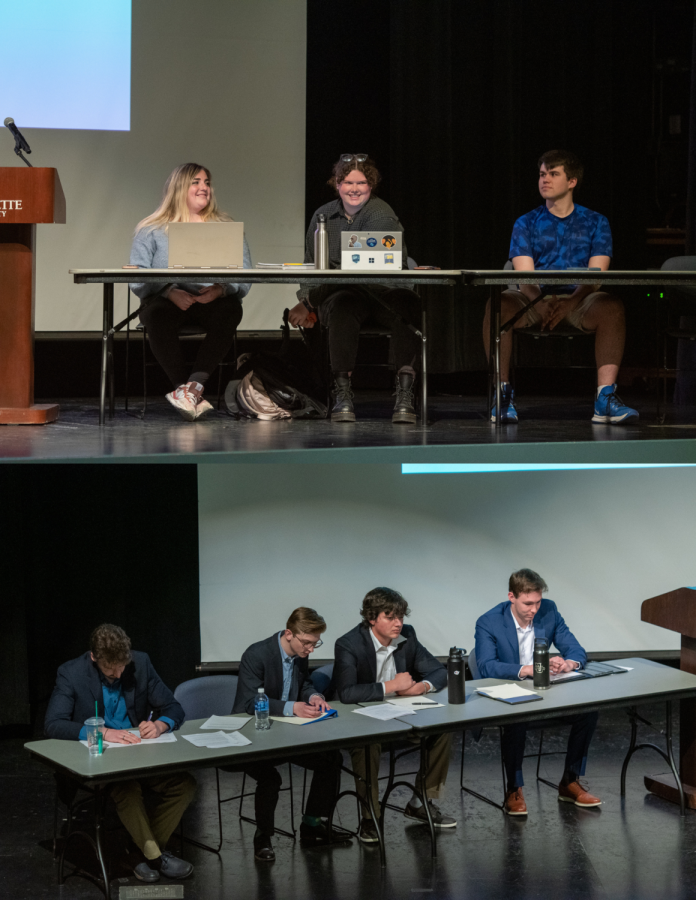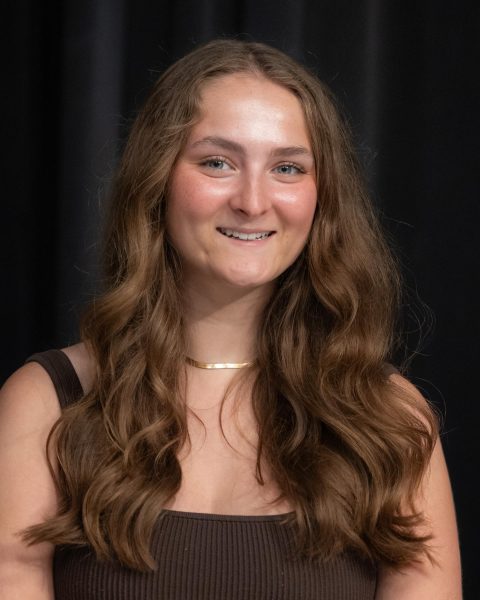Marquette Civic Dialogues describes themselves as “encouraging the deliberative and honest exchange of ideas about what we should do about the public problems we face in our world today.”
Amber Wichowsky, associate professor of political science, said the program focuses on the idea of increasing opportunities for students to practice their debate skills and to bring speakers to Marquette’s campus who model civic dialogue.
“The program itself is based around one very simple question, ‘what should we do?,'” Wichowsky said.
Riley McAdams, a sophomore in the College of Arts & Sciences and undergraduate student research assistant for Civic Dialogues, said the program aims to approach civic engagement and conversations since she said it can be a problem having civil conversations about political topics.
Wednesday, Sept. 15, Civic Dialogues hosted their first kick-off event at the Henke Terrace. Participants joined the program at dinner to discuss and debate what to do about climate change.
McAdams said that those who pre-registered for the event had to complete a survey so they could understand where everyone stood politically to ensure that there were diverse beliefs at every table during the event.
“We had some information provided for people about climate change to base their conversations off of, and we had facilitators at each table to help guide the conversation, get certain people involved in the discussion or maybe play devil’s advocate so it wasn’t all a one-sided conversation,” McAdams said.
At the end of the dinner, McAdams said participants had a group discussion focusing on what the consensus was regarding climate change. A short survey about the participant’s experience at the event was sent out for the program to understand if people thought they had meaningful conversations and if they enjoyed the event or not.
Savannah Charles, graduate student research assistant for Civic Dialogues said the program is important because it promotes an opportunity for people to become more informed about topics happening in the world today.
“No matter what perspective or opinion you’re bringing to the table, if you can walk away having learned something new, having considered another perspective — I think that’s my main goal, and really just bringing students with different ideas together,” Charles said.
Charles also said that having a respectful and informative conversation is a really important skill to have versus two divided sides who aren’t willing to engage with another.
In the future, Civic Dialogues hopes to have conversations about homelessness, gun control, the declining trust in science and a follow-up conversation about climate change.
“There’s a whole wide range of topics that we could be exploring, and so our first event … was our dinner dialogue series. We just figured coming off of last year’s really difficult year being socially isolated from one another, so what better way to bring people together over a meal outside,” Wichowsky said.
Charles said that Civic Dialogues hopes to help students learn how to gain new perspectives on issues happening in the world around them, and to learn how to respectfully engage with people who have different beliefs.
Wichowsky said the program wants to establish more opportunities to deepen civic engagement — especially when it comes to topics that can be debated and can be politically contentious and divisive.
“I want students to just have opportunities to develop those skills — the speaking, the listening, that argumentation, and these are skills that have to be practiced just like any other skill. The second piece is to really showcase Marquette as a place where we’re doing this to highlight our students who are civic leaders, and to think about how they can take those skills into their professional lives post graduation,” Wichowsky said.
This story was written by Julia Abuzzahab. She can be reached at julianna.abuzzahab@marquette.edu


